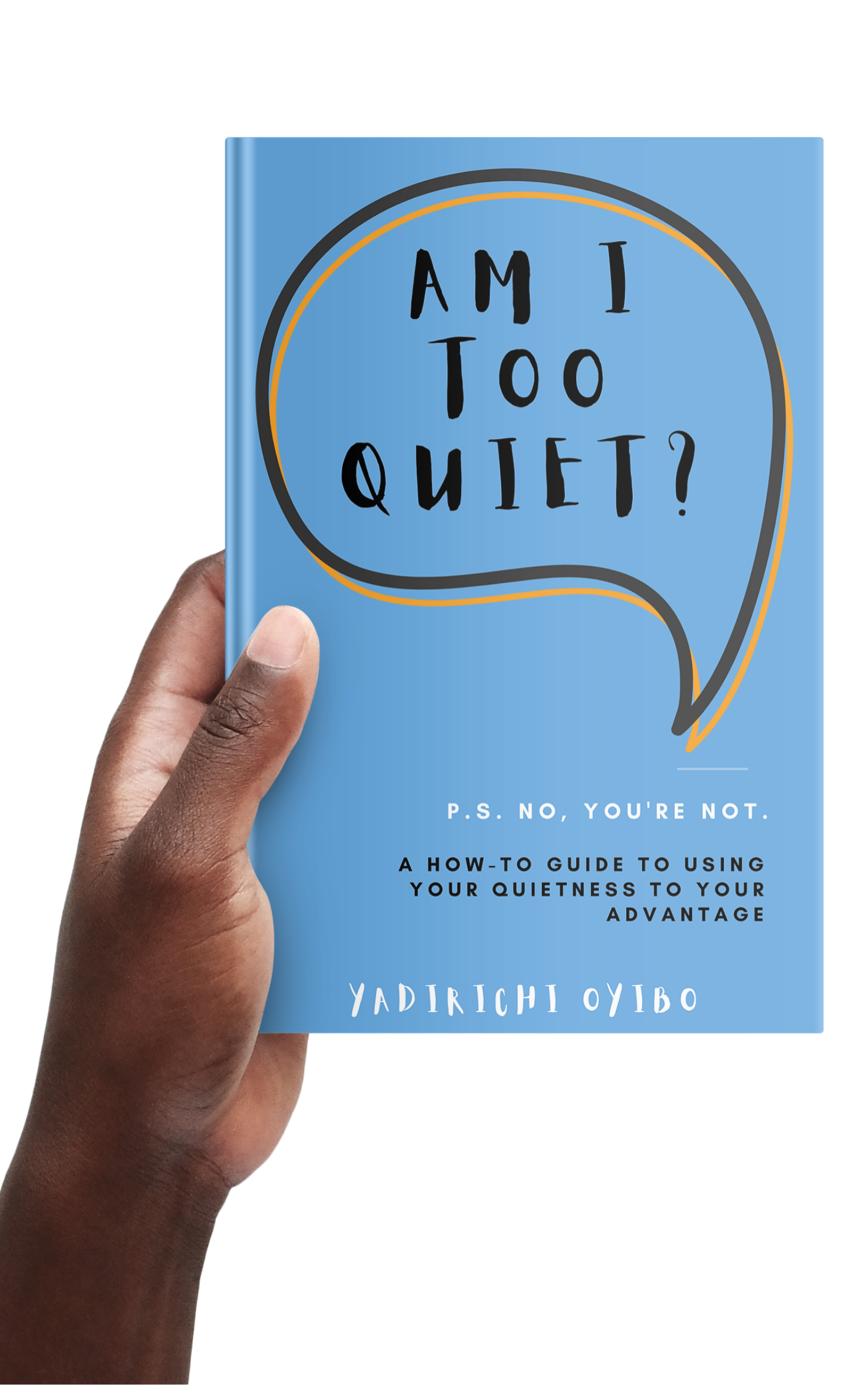See 16 Shocking Toxic Behaviors an Unhealthy INFJ will Exhibit
Photo by Alina Levkovich on Unsplash
An unhealthy personality type develops when a person uses their function stack ineffectively. This term refers to mental processes (functions) that people use in a certain order (stack) of preference.
For example, I’m an INFJ, so I’d lean more to my feeling functions, which means i’ll act based on how I feel in most cases than generally accepted logic.
What is an unhealthy personality? An unhealthy personality example is someone that entirely prioritizes some of their functions over others, without incorporating a balance.
So if I choose only to focus on my feelings without using my thinking functions at all, I’m what you can call, ‘unhealthy”. More so, I wouldn’t function well with those around me.
INFJ: Healthy vs Unhealthy
There isn’t any strictly healthy or unhealthy INFJ person — especially with other types too.
The essence of learning about our personalities is to discover our weaknesses, deal with them, and become better versions of ourselves.
This means we all have a combination of healthy and unhealthy personality traits, but we can identify and work on our weak points.
However, for severely unhealthy advocates, the following traits are why INFJ are dangerous.
Reasons Why People Become Unhealthy Versions of their Personalities
Environmental Factors.
The key to having a healthy personality is to discover and explore your temperaments, and more importantly, express yourself, and give room for growth.
However, many people tend to grow up in environments that favor other personalities over theirs. Thus, they evolve with the mindset that there’s something wrong with them, and they shouldn’t be themselves.
The more they suppress their true natures and imitate others, the more they become shadows of themselves —which will inevitably become unhealthy. In the long run, not using their cognitive functions in a rightly, balanced way can lead to more issues for themselves and other people they associate with.
Related: The Easy Reader's Guide to the Eight MBTI Cognitive Functions
2. Unwillingness to grow.
Some people are aware of their cognitive functions and have the advantage of the right environment to express themselves productively. But, they might choose to stick to their most preferred cognitive functions, without balancing other traits.
For example, an INFJ person’s dominant function is Introverted Intuition. Even though they use this function in their everyday dealings, their auxiliary, tertiary, and inferior functions still play a crucial role in making them healthy individuals. If they focus only on the first, they might face challenges with being too aloof and having difficulty connecting with others.
This analogy is the same with other personality types that may come off as too cold, unserious, authoritative, etcetera. The key factor is balance.
16 Signs of an Unhealthy INFJ
They are unable to deal with confrontation.
If you can't solve a quarrel or restore peace, your aversion to confrontation becomes unhealthy, and you're more inclined to shut down. This scenario is particularly common with unhealthy INFJs. Conflict tends to be highly disturbing to the extent they avoid it at all costs.
This process occurs because INFJs naturally absorb the sentiments of others around them. Thus, if there's anger or irritation in the surrounding, they will unconsciously take them in. However, healthy INFJs try their best to take charge of the dispute and stop it on time, so they can feel better.
But for an unhealthy INFJ, they might choose to avoid it, but end up sabotaging their inner peace and the stability of those around them. Even though this INFJ behavior is common, the best way to handle it is to decide to face confrontations. It might be unpleasant, but it’s critical to feel better later on. Resolve the challenge inwardly and then physically confront it.
2. INFJs who are unhealthy block their minds to different points of view.
New views are exciting to a healthy INFJ, but they might make you feel threatened if you're an unhealthy INFJ. This attitude is linked to your strong dislike for confrontation.
When someone expresses an opinion or perspective that contradicts your own, an unhealthy INFJ is more prone to feeling personally attacked because of their perspectives. They close themselves off to shield themselves from getting hurt.
Instead of being intrigued by the intellectual process behind it, they’re more likely to remark, "Why would you assume that?" This process might turn an Advocate into an INFJ master manipulator.
It’s safe to say that unhealthy personality types usually have defensive characters because they have internal damages, and a hurt person wouldn’t necessarily want to incur more injuries. However, the key to becoming healthy as an Advocate is to build your INFJ confidence and work on your internal weaknesses without necessarily changing who you are as a person.
3. Toxic INFJs attempt to make others happy, but as a result, resent them.
INFJs, whether good or disordered, yearn for harmony in their surroundings. They like meeting people's needs and ensuring those around them are happy. Due to their Extroverted Feeling (Fe) function, they ultimately thrive on happiness and peace, and it's difficult for them to unwind without it.
Healthy INFJs, on the other hand, speak up when they’ve reached their limit of assisting. More so, they try not to hold grudges against those they help, especially when things don’t go their way.
INFJs who are unhealthy might have a problem refusing demands, even when they can’t mentally or physically attend to it. As a result, they might become resentful of the individuals they are assisting. They keep a cognitive tally of everything they've accomplished for others and match it to how little they get in return.
Unhealthy INFJs might seem emotionally underdeveloped because they fail to communicate responsibly and expect others to consider their strengths and weaknesses. Nevertheless, they are stronger than they realize, except they can work on establishing healthier barriers.
Related: Am I Too Quiet? P.S. No, You’re Not. A How-To Guide to Using Your Introversion to Your Advantage
4. Instead of listening to other people's opinions, unhealthy INFJs abandon fights.
INFJs who are toxic are very devoted to their viewpoint and can be rather adamant about it. They tend to declare their perspective rather than having a nice debate where both views are heard respectfully. This prevents their conversation buddies from feeling heard and accepted or believing that their presence is appreciated.
When INFJs suppress their auxiliary function (Extroverted Feeling) or do not cultivate their dominant or tertiary function (Introverted Intuition (Ni) or Introverted Thinking (Ti)) constructively, this scenario happens. However, for a healthy INFJ, it's all about perceptions. They adore hearing other people's perspectives and empathizing with their viewpoints.
A problem or a different perspective on things doesn't bother them. On the contrary, it stimulates them. This explanation can make an unhealthy INFJ seem like one of the manipulative personality types. They tend to steer discussions to their favor, leaving their subjects unhappy afterward. Nevertheless, prioritizing their Fe function can help them be more in the moment and listen to others better.
5. Toxic INFJs tend to be overly sensitive and self-absorbed.
A common trait with INFJs is their sensitive natures. They are naturally passionate individuals who are purpose-oriented and work towards the good of people in general. However, this temperament can develop into high sensitivity, if caution isn’t taken.
For an INFJ with an underdeveloped personality or an unhealthy Ni, this scenario might be the result. Needless to say, having an unhealthy cognitive function might not be the individual’s fault. Things like environmental factors and associations can cause a person to act poorly.
INFJs that are unhealthy take things to heart quite easily. They take any criticism personally and can easily conjure up a "me vs the world" situation in their heads.
Similar to the way a narcissist holds grudges, someone with an unhealthy personality might grow resentful of others that unintentionally hurt them.
6. They are hyper-aware of others' body language and remarks.
INFJs who are unhealthy tend to be anxious over what other people think of them. They can misunderstand innocent statements or body language, believing that other people dislike them. This process occurs because of their natural sensitive natures, and they unconsciously look for reinforcement and affirmation from those around them.
Due to this reaction, they may withdraw from social interaction, while trying to figure out what others perceive of them. This behavior is also why research suggests that some INFJs are most likely to have an avoidant personality disorder.
What causes this scenario to happen? When an INFJ hasn’t received enough positive validation in their life, they tend to grow overly conscious of other people’s remarks. They unconsciously feel there’s something wrong with them, which explains why they are commonly misjudged or believe their strengths are misinterpreted as flaws.
INFJs can experience more self-confidence once they recognize their talents (and embrace their limitations for what they really are). A great self-help tool is this book.
7. They like to be alone and avoid commitments and responsibilities.
INFJs naturally recharge by spending time alone because they are introverts. However, some INFJs go too far and isolate themselves completely from others. This process is called the Ni-Ti loop, and it can be quite unhealthy. Since they’re introverts, Introverted Intuition (Ni) and Introverted thinking (Ti) will be their most-used functions. However, they tend to become too engrossed in analysis and fail to express their opinions openly, which is a major halt to personal growth.
To make their thoughts and insights useful in the real world, INFJs must use their Extroverted functions of feeling and sensing as much as others. More so, INFJs must strike a balance between alone time and outside activities.
Getting feedback from peers and participating in new events can encourage an introvert, and provide them with fresh avenues to pursue their goals. Therefore, the healthy vs unhealthy INFJ comparison can be categorized by how willing an INFJ is to leave their safe spot and dominate their niches like pros.
8. They battle with impulsive behaviors regularly.
When INFJs are experiencing a grip stress reaction, they can become unusually fixated on obtaining sensual pleasures. This grip stress reaction occurs when an individual holds on to their weakest function (the inferior function), due to the amount of stress they’re under, and the inaccessibility of the other dominant functions.
For INFJs, the inferior function is the Extroverted Sensing (Si) function, which focuses on experiencing the world from external factors such as sight, taste, touch, etc. When an Advocate personality is stressed, they might engage in compulsive behaviors using this function.
Some unhealthy INFJ examples can include eating everything in their cupboard, rearranging their belongings obsessively, or spending the entire day on the couch binge-watching movies.
If you discover yourself doing this frequently, identify the stressors and look for strategies to relieve them. This process guarantees better results than choosing to indulge more.
9. They consider themselves to be wiser than others.
INFJs are so unique from others that some unhealthy INFJ characters can become conceited. They may believe they are superior to other people, or perhaps, more desirable than other personality types. They may also regard people with thinking, feeling, and perceiving functions as closed-minded, harsh, or underachievers.
This process occurs when a person focuses primarily on their top three functions while neglecting the others. We naturally use all of our eight cognitive functions but tend to focus more on the more dominant ones. Nevertheless, disregarding the others can lead to massive dislike of these functions in others.
Even if you seem like a healthy INFJ, it’s necessary to pay attention to what you're thinking. You may become toxic if you use one-dimensional adjectives or labels to describe others around you. Being able to understand the diversity of other personalities and admire them for their differences is how to be a healthy INFJ.
10. They have an unbreakable perfectionist streak.
INFJs are perfectionists by nature, but toxic INFJs carry this to an extreme level and enter a loop of self-criticism and unreachable high standards. They go through every text, email, and letter they send several times. They are afraid to communicate their ideas for fear of being rejected.
The unhealthy INFJ male is passionate about several subjects and fears failure to a maximum degree. Likewise, the unhealthy INFJ female has high standards and believes perfectionism will help her achieve her desires.
Thus, the unhealthy INFJ develops an internal critic that criticizes every decision they make. They exhaust themselves trying to be perfect to be above reproach and impervious to criticism. However, understanding the difference between being authentic and being perfect is how to be a healthy INFJ.
11. They lose sight of the fact that they are significant.
Many INFJs go through stages in which they feel accountable for other people's emotions. However, this might grow into neglect of their wants and needs. It might even be difficult for them to advocate for anything they desire since they are terrified of being perceived as greedy.
This situation occurs from the excessive usage of the Extroverted Feeling function. When an INFJ absorbs the emotions of others to a great degree, they often lose sight of theirs, and this process becomes unhealthy.
INFJs must remember that they are valuable and that they should prioritize their needs appropriately. Irrespective of their environment or the Advocate Personality careers they venture into, they need to regularize their Fe function and learn how to cater to their demands.
12. They make room for other people's bad actions.
The INFJ personality is unavoidably pleasant. Unfortunately, this means they frequently lure toxic or psychologically-needy people to them. Unhealthy INFJs let these individuals — and the instability they bring — into their lives; thereby causing chaos.
As mentioned in the previous point, an over-prioritization of the Fe function can make an INFJ sympathize with people they shouldn’t associate with.
They may make justifications for other people's poor actions, like, “They grew up in a shattered household, so they don’t know any different. That’s why they hurt me."
Because of their intrinsic desire to assist others, INFJs may also subconsciously befriend or enter into relationships with toxic people in a bid to try to rescue them. This longing to fix people only causes an unhealthy INFJ to like someone completely wrong for them.
13. They cut people off easily and harbor grudges.
The INFJ door slam can be a beneficial protective mechanism that shields INFJs from toxic interactions, and it is sometimes essential. Unhealthy INFJs, on the other hand, shut the door before even attempting to fix an underlying issue. The door slam then becomes a primary technique of dealing with issues in their associations, rather than a last resort.
One of the reasons why this scenery occurs is when an INFJ has been hurt recurrently, to the extent they judge others before even giving them a chance. These are unhealthy INFJ characters that can cost them precious relationships.
Needless to say, you shouldn’t tolerate the wrong person merely because you’re trying to be nice. Instead, you should monitor where your grievances are coming from. Are you using other people’s past mistakes to judge your present associates? Or are they vividly exhibiting toxic behaviors? Knowing this can reduce an INFJs dissatisfaction in marriage.
Liking this article? Join our Introvert Club→
14. They don't have strong boundaries.
Unhealthy INFJs often allow others to exploit them. It can be termed a lack of boundaries personality type when they don’t have a grip on how to deal with people. In the previous example, INFJs can be too stern in their relationships, but might also display feebleness. These actions are caused by the inability to balance out their Extroverted Feeling and Sensing functions.
They'll happily babysit your children again, even if it entails sacrificing their own plans. They're also terrified of saying "no,” because they’re afraid of receiving backlash. INFJs who are unhealthy tend to be persistent people-pleasers who want to avoid letting people down.
It’s necessary to monitor your behavior with others if you’re an INFJ and always balance out your actions. If you observe yourself going overboard, figure out the root of the problem and curb it.
15. They choose not to let people in.
INFJs are introverts by nature, so they open up slowly to others — and that's fine. However, when some INFJs refuse to open themselves to others, they can be extreme about it. This trait can become an issue, especially when relating with a partner, best friend, or a loved one. They might choose to seal up important aspects of their lives to those that could be of massive help to them.
Because they are afraid of being judged, unhealthy INFJs rarely disclose their genuine emotions and opinions to people close to them. They want to avoid seeming like a needy personality type or getting their emotions hurt. Nevertheless, they may get lonely and unhappy as a result of their isolation. This behavior is similar to an introverted Sagittarius who tends to be secretive about things. However, to function at their best, INFJs, like every personality, require solid relationships, which is built with constant interaction.
16. They are disengaged with life.
INFJs have a natural ability to observe. They enjoy taking a step back and studying scenarios and people. They're also quite laid-back in groups, and they're usually relaxed about letting others have their way. These traits, however, may cause INFJs to become passive, which is an unhealthy behavior.
Some unhealthy INFJ signs include allowing others to decide how you spend your time, either consciously or unconsciously. Unhealthy INFJs don’t hold on to their judgment to avoid making a bad decision or having friction with others. Therefore, unhealthy INFJs tend to feel powerless in the face of situations and envision life as an event that merely occurs to them.
FAQs
What is an unhealthy INFJ like?
An unhealthy INFJ might exhibit certain behaviors like resenting people they help or being overly sensitive to people’s remarks and body language.
How can you tell if an INFJ is unhealthy?
Unhealthy INFJs don’t balance out their cognitive functions, which is why their behaviors might seem extreme to the healthy version of this personality type.
How to be a healthy INFJ?
The secret to becoming a healthy Advocate is to discover areas where you’re either overusing or underusing your functions and find out how to balance out these temperaments.
Are INFJ dangerous?
INFJs are some of the sweetest souls you might come across. Nevertheless, in their unhealthy states, they can exhibit compulsive behaviors.
Is holding a grudge immature?
Holding grudges tends to be a normal reaction to being hurt by another person. Nevertheless, it’s scientifically proven to be bad for your health more than it affects the receiver of the agitation.
Live Your Best Quiet Life
Get the Am I Too Quiet? book →
CONCLUSION
Did you enjoy this article? Recall that everyone is on a journey to becoming a healthier version of themselves. So, never get tired of learning. Kindly leave a comment below if you liked this article or share it with others.















